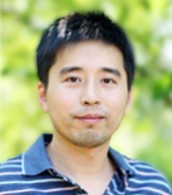首页﹀
Regulating Conglomerates: Evidence from an Energy Conservation Program in China
2021-10-15
Time:10:00 am-11:30 am, Oct. 15th, 2021
Platform:Zoom
Speaker:Daniel Yi Xu
(Duke University)
Link:https://us06web.zoom.us/j/83034958277?pwd=emkyd0NTQVhiR2xKbGpUZVNnekQwZz09
Meeting ID:830 3495 8277
Passcode:inse
Abstract:
We study a prominent energy regulation affecting large Chinese manufacturers that are part of broader conglomerates. Using detailed firm-level data and difference-in-differences research designs, we show that regulated firms cut output and shifted production to un-regulated firms in the same conglomerate instead of improving their energy efficiency. Conglomerate spillovers account for 40% of the output loss of regulated firms and substantially reduce aggregate energy savings. Using a structural model, we show that alternative polices that use public information on business networks could lower the shadow cost of the regulation by more than 40% and increase aggregate energy savings by 10%.
Speaker:

Professor Daniel Yi Xu is currently Professor of Economics at Duke University and Research Associate at the National Bureau of Economic Research (PR, DEV, ITI Groups). He is the co-editor of Review of Economics and Statistics. He is also an associate editor of the Rand Journal of Economics and AEJ: Applied. His research interests include Productivity/Innovation, International Trade, and Industry Dynamics. His research lies at the intersection of Productivity, International Trade, and Industrial Organization. His long-term research agenda is concentrated on using large-scale micro data to model and estimate a rich set of individual firm decisions, often dynamic, and to investigate how these decisions affect resource allocation, industry performance, and economic growth especially in developing and emerging economies. Professor Xu is interested in applying research methodologies that combine structural IO/quantitative trade techniques with quasi-random policy variations/RCT in developing countries. He received his Ph.D. in economics from Pennsylvania State University in 2007.

